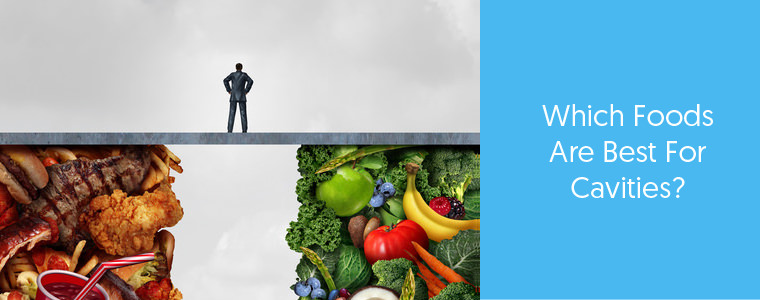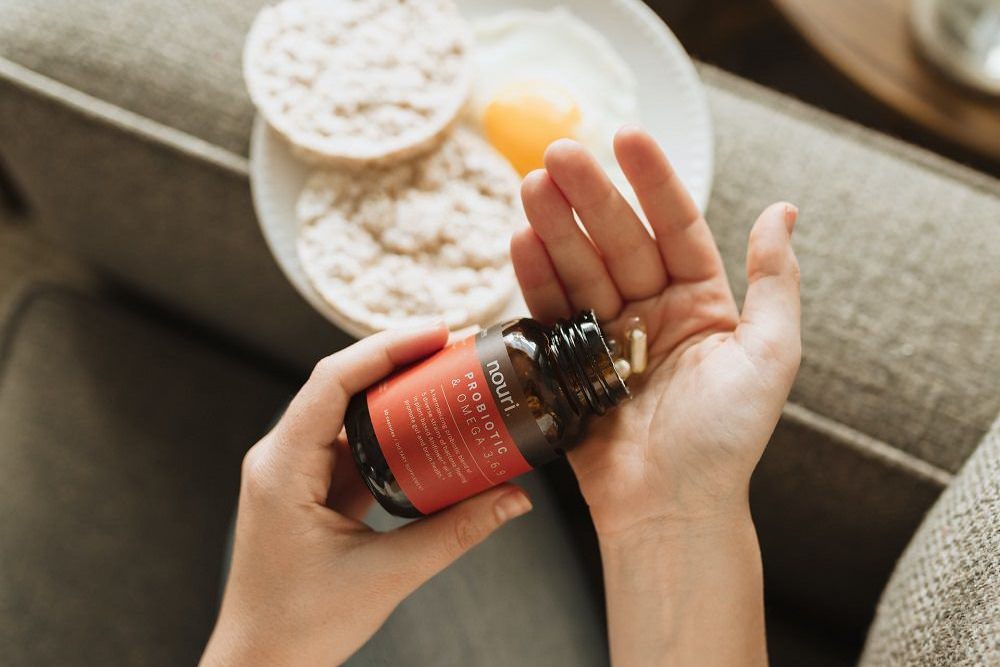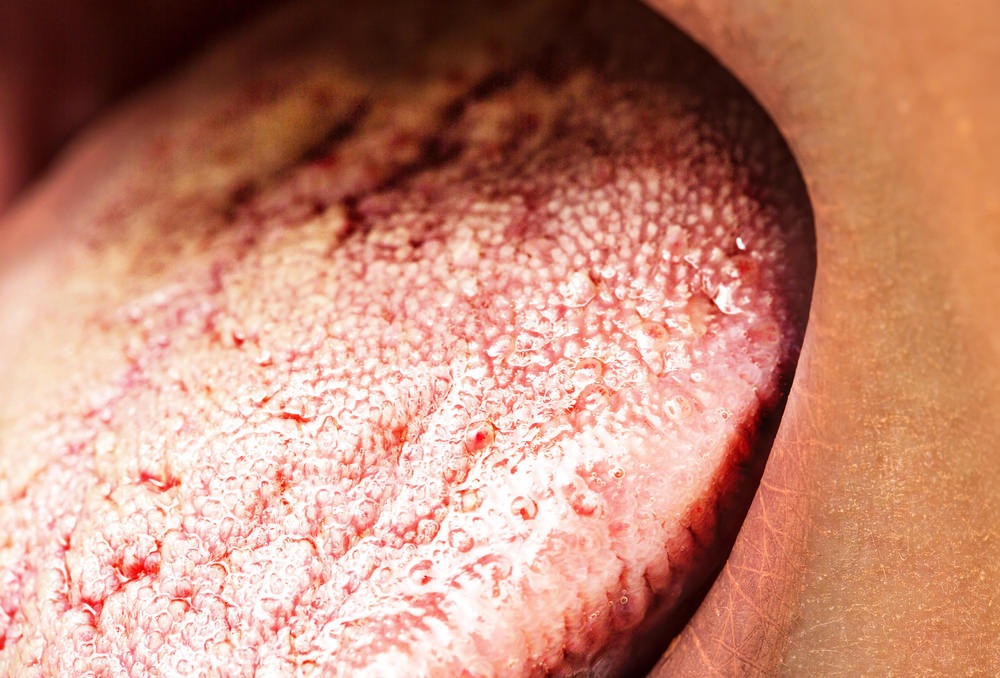Foods that Heal Cavities and Foods that Don’t
According to traditional Dentistry, there’s only one way to treat a cavity – with a drill and a filling. But is there a way of healing cavities through the foods you eat?
According to some sources, yes – it involves eating the proper diet to ensure you get enough vitamins, minerals and nutrients.
Your diet should contain;
- Enough minerals
- Enough fat-soluble vitamins (A, D, E, and K)
- Nutrients to be readily bioavailable, so your intestinal system can properly absorb them. How much phytic acid exists in your system has a large influence on this.
Today I’ll tell you all about the process – the foods to eat, the foods to avoid, and how you can reverse your cavities at home to avoid the Dentist’s drill!
How Does it Work?
According to the American Dental Association, the reason we have tooth decay is;
“[Tooth decay] occurs when foods containing carbohydrates (sugars and starches) such as milk, pop, raisins, cakes or candy are frequently left on the teeth. Bacteria that live in the mouth thrive on these foods, producing acids as a result. Over a period of time, these acids destroy tooth enamel, resulting in tooth decay.”
Obviously, as the saying goes, prevention is better than cure – so the best way to heal cavities is to avoid them altogether. The good news?
Your diet may help heal existing cavities, and also prevent new ones from forming!
How do you wonder? Well, let’s elaborate on how cavities form, and what role food plays in that process.
Four Main Factors in Cavity Formation
- Your teeth and saliva – This is where the bacteria feast, so their condition, including minerals, volume and pH levels, have a large impact on the formation of cavities.
- Your oral microbiome – That is, the millions of microorganisms in your mouth, and whether they are harmful, beneficial, or neutral.
- Your diet – The food you are eating, and whether you’re getting enough nutrients for remineralisation.
- How frequently these first three factors overlap – Overlap too many times, and you’ve just created the perfect breeding ground for the formation of cavities.
The food you eat every day affect your oral microbiome and saliva – when you eat the wrong foods (and we’ll discuss those shortly), you breed bacteria that causes tooth decay.
Over time, if your diet lacks the necessary vitamins and minerals, or contains too much phytic acid, your blood chemistry and the ratio of phosphorous and calcium get out of balance.
This results in minerals being pulled from bones, which causes tooth and bone loss.
Additionally, the quality of your diet determines whether you are getting the required nutrients to support your teeth’s natural remineralisation process.
“Remineralisation” refers to minerals being restored to demineralised areas – in general, your bones, teeth, or any other parts of your body that need certain types of minerals to support their structure.
Your teeth require a lot of vitamins and minerals to constantly regenerate, and if you are not getting this from your diet, you may not be allowing your teeth to heal themselves.
So – all your life you may have known that there is a certain food that can cause cavities, but did you know that there are foods that may prevent and heal cavities?!
Well, here they are!
What Foods Should I Eat for Remineralisation?
There are specific nutrients your teeth need to heal cavities. Make adjustments to your diet, using this list to see where you can find the necessary nutrients in foods;
Calcium
Calcium helps you produce more saliva, which assists in putting minerals back into your teeth that you may have lost.
The general assumption is that dairy products such as milk, cheese and yoghurt are the best form of calcium, but this is not always the case.
Although cheese is another food that helps you promote salivation, and milk contains phosphates, not everyone can eat these foods.
For those who are lactose intolerant, raw, grass-fed milk is more easily digested and also higher in the mineral count.
Seafood such as salmon, oysters, clams, and shrimp are a great dairy-free source of calcium.
Another option is plant-based foods such as broccoli, kale, cauliflower, olives, nuts or figs.
Vitamin D
Vitamin D controls your bodies ability to absorb calcium and phosphorous.
Even if you are taking a good dosage of those minerals, you’re basically wasting your time if you’re not taking enough Vitamin D as well.
This study, performed in 2013, showed that “vitamin D was a promising preventative agent against tooth cavities and decay (dental caries), which lead to a low-certainty conclusion that vitamin D may reduce the incidence of dental caries”.
It’s well known that spending time in the sun is the fastest way to increase your levels of Vitamin D, but you can also try eating mushrooms, egg yolks, and seafood such as salmon or sardines.
Vitamin K2
A lesser-known vitamin, but much like Vitamin D, Vitamin K2 also controls your absorption of minerals.
These two vitamins actually work in an alliance, ensuring there is all the calcium, phosphorous and magnesium your teeth need for remineralisation.
Vitamin K2 is found in egg yolks, chicken liver, ground beef and grass-fed dairy products such as aged cheese.
Magnesium
Magnesium is what is responsible for the remineralisation of your teeth, as well as synchronising the balance of other nutrients in your body, such as phosphorous and calcium.
If left unchecked, it can actually lead to demineralisation of your teeth. Increase your intake of magnesium by adding squash seeds, cacao, blackstrap molasses, leafy greens and avocado to your diet.
Phosphorous
Appropriate levels of phosphorous are known to prevent tooth decay – keep them above 3.5.
However, finding sources of phosphorous that are beneficial to your dental health is tricky.
Phosphorus is in beans, grains, and nuts, but these also contain phytic acid, which inhibits the absorption of the nutrients.
Try phytic acid-free, phosphorus foods instead, such as meat, poultry, fish, eggs and dairy. Another benefit to these foods is that they contain protein.
Foods that Promote Salivation
Certain vitamins help produce saliva, which helps to prevent bacteria from staying on your teeth.
Foods that help promote salivation include bananas, Brussel sprouts and peas.
Sugarless chewing gum will also promote salivation and remove food particles from your mouth.
Natural Probiotics
The nasty bacteria that are related to infection hide in small areas between your teeth.
Eating probiotics help to balance out any acidic pH levels, stimulate the production of healthy bacteria and prevent the build-up of plaque.
Foods rich in probiotics include fermented foods such as kimchi and sauerkraut.
Fibre
Fruits and vegetables are an important part of any diet, and they are also good for your teeth.
They contain a lot of water and fibre, so they help to balance the sugars they contain and help to clean your teeth.
Chewing these foods also helps to stimulate the production of saliva.
This is your best natural defence against cavities next to a good dental care regime.
Water
Water, especially fluoridated water, is the best beverage for keeping up your dental health.
Fluoride helps to make your teeth stronger, and more resistant to the acid that can cause cavities.
Usually not available in bottled water, only tap water – add more water to your diet for healthier teeth!
Fluoride
Fluoridated drinking water, or any food or drink you make with fluoridated drinking water, will help your teeth.
This includes powdered drinks (just be careful they don’t contain a lot of sugar) and dehydrated soups.
You can also find some commercially prepared foods, including poultry products, seafood and powdered cereals, will also contain fluoride.
Green and Black Teas
Both teas contain polyphenols, which kill or hold back the plaque bacteria, preventing the bacteria from making acid.
If you make your tea with the right type of water, it can also be a source of fluoride.
Also, consider supplements including;
- Fermented cod liver oil – This is very high in fat-soluble Vitamins A, D and K.
- Gelatine – An alternative for bone broth, this is great for both your gums and your digestion.

Source: www.askthedentist.com
What Foods Should I Avoid?
So now you understand “remineralisation”, let me explain to you “demineralisation.”
“Demineralisation” is clearly the opposite of “remineralisation”.
Thus, it is the reduction of vitamins, minerals and other nutrients in your tissues or organisms, such as the bone demineralisation of your teeth.
Demineralisation can lead to serious diseases such as tooth decay and cavities. It can be caused by eating or drinking substances that can actually deplete your teeth of nutrients.
Eating these foods on a regular basis will make healing your cavities naturally almost impossible.
Foods to avoid – or at least greatly limit from your diet
Sugary Foods and Drinks
This is probably the most well-known one to avoid.
Sugars provide food for the nasty bacteria’s in your mouth that cause cavities.
Also, when filling yourself up on too many nutrient-deficient foods, it’s likely you’re not eating enough healthy foods.
Foods to avoid at all costs when trying to reverse your cavities are cake, cookies, fruit juice and lollies.
Foods High in Phytic Acid
Phytic acid is an antinutrient. It inhibits the absorption of certain nutrients, including the minerals you need for remineralisation, such as calcium and magnesium, and promotes mineral deficiencies.
It is found in grains, legumes, wheat, beans, rice, almonds, soybeans, corn, barley, brazil nuts, hazelnuts, maize, millet, oats, peas, rye, sesame seeds, tofu, walnuts and lentils.
Simple Starches
A simple starch actually turns to sugar almost immediately after you’ve finished eating.
Examples include crackers, pasta, white rice and white bread.
Dried Fruit
Fruit… you think it would be healthy.
But when the fruit is changed into dried fruit, all of the water that once existed in that fruit is removed.
This procedure concentrates all the natural sugar in the fruit, hence why dried fruits taste so much sweeter than the real thing.
It also explains why they are so bad for your teeth – they stick to your teeth, trap sugar and all the bacteria on your teeth.
Sticky foods are your teeth’s worst enemy. If you do find yourself eating dried fruits regularly, make sure to rinse and floss afterwards.
Ice
It’s just water… it can’t be bad for your teeth, right?
Wrong.
Chewing on hard substances can damage the enamel.
Acidic Foods and Drinks
Frequent exposure to acidic foods can erode your enamel, making your teeth more susceptible to decay. Beware of too many citrus fruits and juices.
Watch your pH levels in your Foods and Drinks
Imbalanced pH levels will create a great environment for the bacteria.
Beverages such as coffee and citrus fruit juices imbalance your pH levels.
If you’re having trouble giving up your daily coffee, try swapping it for a green tea, as this contains polyphenols to help heal your cavities instead.
Substances that dry out your mouth
These include alcohol, which causes dehydration, and many medications.
If it is your medication, talk to your dentist about getting a fluoride rinse, or a fluoride gel for brushing your teeth.
Conclusion
So, can ALL cavities be healed naturally? Unfortunately not – only those in the beginning stages of formation. Sometimes remineralisation is not possible.
You may not notice the cavity before it’s too late, which is why you still require your regular Dental check-ups. It is likely that the damage is too great to be reversed, and you require treatment by your Dentist.
However, if you are thinking about remineralisation and wish to prevent cavities in future, ensure your diet is full of foods rich in vitamin D, vitamin K2, magnesium, calcium, and phosphorus.
Eating nutrient-rich foods will ensure you are getting the vitamins and minerals your body needs to stay healthy and maintain your bones and teeth.
If eating sugary foods, think wisely. Rinse your mouth after eating these foods and cut back on your intake. Avoid the inhibiting effects phytic acids have on your body.
Just know, avoiding sugary or acidic drinks and foods is just one way to slow down demineralisation. Join a well-balanced diet with proper dental care and you’ve got the best defence against oral health issues such as cavities.
Sourced from;
https://askthedentist.com/foods-heal-cavities/
https://askthedentist.com/healing-cavities-naturally/
https://organic.org/how-to-heal-cavities-naturally/
https://www.mouthhealthy.org/en/nutrition
https://www.ncbi.nlm.nih.gov/books/NBK127040/
By Anthony Cade
Created at October 23, 2019, Updated at January 25, 2025





